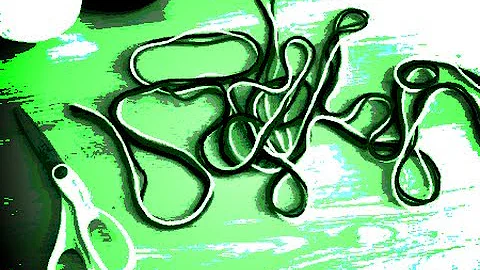Separate numbers, strings from one line using bash
18,678
Solution 1
GNU grep or compatible solution:
s="string123anotherstr456thenanotherstr789"
grep -Eo '[[:alpha:]]+|[0-9]+' <<<"$s"
[[:alpha:]]+|[0-9]+- regex alternation group, matches either alphabetic character(s) or number(s); both will be considered as separate entries on output
The output:
string
123
anotherstr
456
thenanotherstr
789
Solution 2
POSIXly:
string=string123anotherstr456thenanotherstr789
sed '
s/[^[:alnum:]]//g; # remove anything other than letters and numbers
s/[[:alpha:]]\{1,\}/&\
/g; # insert a newline after each sequence of letters
s/[0-9]\{1,\}/&\
/g; # same for digits
s/\n$//; # remove a trailing newline if any' << EOF
$string
EOF
Solution 3
GNU sed (or compatible) solution:
s="string123anotherstr456thenanotherstr789"
sed 's/[a-zA-Z]*\|[0-9]*/&\n/g; s/\n$//' <<<"$s"
The output:
string
123
anotherstr
456
thenanotherstr
789
Solution 4
python3
python3 -c '
from itertools import groupby
s = ("".join(g) for k, g in
groupby("string123anotherstr456thenanotherstr789", lambda x: x.isalpha()))
print(*s, sep="\n")
'
string
123
anotherstr
456
thenanotherstr
789
Solution 5
Used below one liner to achieve the same. As tested its worked fine
sed "s/[0-9]\{3\}/\n&/g" filename | sed "s/[0-9]\{3\}/&\n/g"| sed '/^$/d'
output
string
123
anotherstr
456
thenanotherstr
789
Related videos on Youtube
Author by
HUY
Updated on September 18, 2022Comments
-
HUY over 1 year
How to separate strings and numbers from one line using a bash command.
Example: I have a string containing
string123anotherstr456thenanotherstr789The output should be:
string 123 anotherstr 456 thenanotherstr 789 -
 G-Man Says 'Reinstate Monica' over 6 years@wjandrea: The OP says (in a comment) “consider it is in a file”.
G-Man Says 'Reinstate Monica' over 6 years@wjandrea: The OP says (in a comment) “consider it is in a file”. -
 G-Man Says 'Reinstate Monica' over 6 yearsIt seems to me that you might as well say that the answer is
G-Man Says 'Reinstate Monica' over 6 yearsIt seems to me that you might as well say that the answer isprintf 'string\n123\nanotherstr\n456\nthenanotherstr\n789\n'. I admit that the question is unclear, in the sense that it is incomplete, but the string presented in the question is clearly labeled as an example. I see no reason to assume that every number that will ever be in the input will be a three-digit number. -
 G-Man Says 'Reinstate Monica' over 6 years(1) Gotcha! (2) Why do you believe that the OP wants non-alphanumeric characters to be ignored?
G-Man Says 'Reinstate Monica' over 6 years(1) Gotcha! (2) Why do you believe that the OP wants non-alphanumeric characters to be ignored? -
 Stéphane Chazelas over 6 years@G-Man, no good reason other than that's what the accepted answer does. It still differs from the accepted answer in that it will print an empty line for each line of input that contains neither letters nor digits.
Stéphane Chazelas over 6 years@G-Man, no good reason other than that's what the accepted answer does. It still differs from the accepted answer in that it will print an empty line for each line of input that contains neither letters nor digits. -
 ilkkachu over 6 yearsI think you could combine the first two seds and add both newlines at one go
ilkkachu over 6 yearsI think you could combine the first two seds and add both newlines at one gos/.../\n&\n/g. I also don't see why insist on the numbers being exactly three digits long, since it's trivial to make a more general solution. -
 G-Man Says 'Reinstate Monica' over 6 yearsAn additional (IMHO, more significant) difference: the accepted answer treats non-alphanumeric characters as word separators, and then discards them, so
G-Man Says 'Reinstate Monica' over 6 yearsAn additional (IMHO, more significant) difference: the accepted answer treats non-alphanumeric characters as word separators, and then discards them, so3.14becomes two output lines (3and14) andG-Man@stackbecomes three (G,Manandstack). Your answer ignores them, so those inputs yield one output each (314andGManstack).




